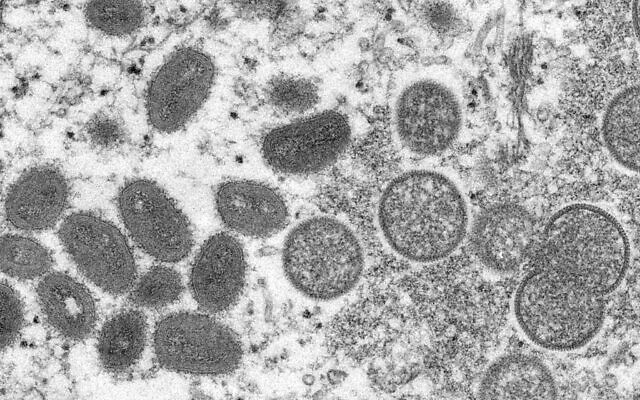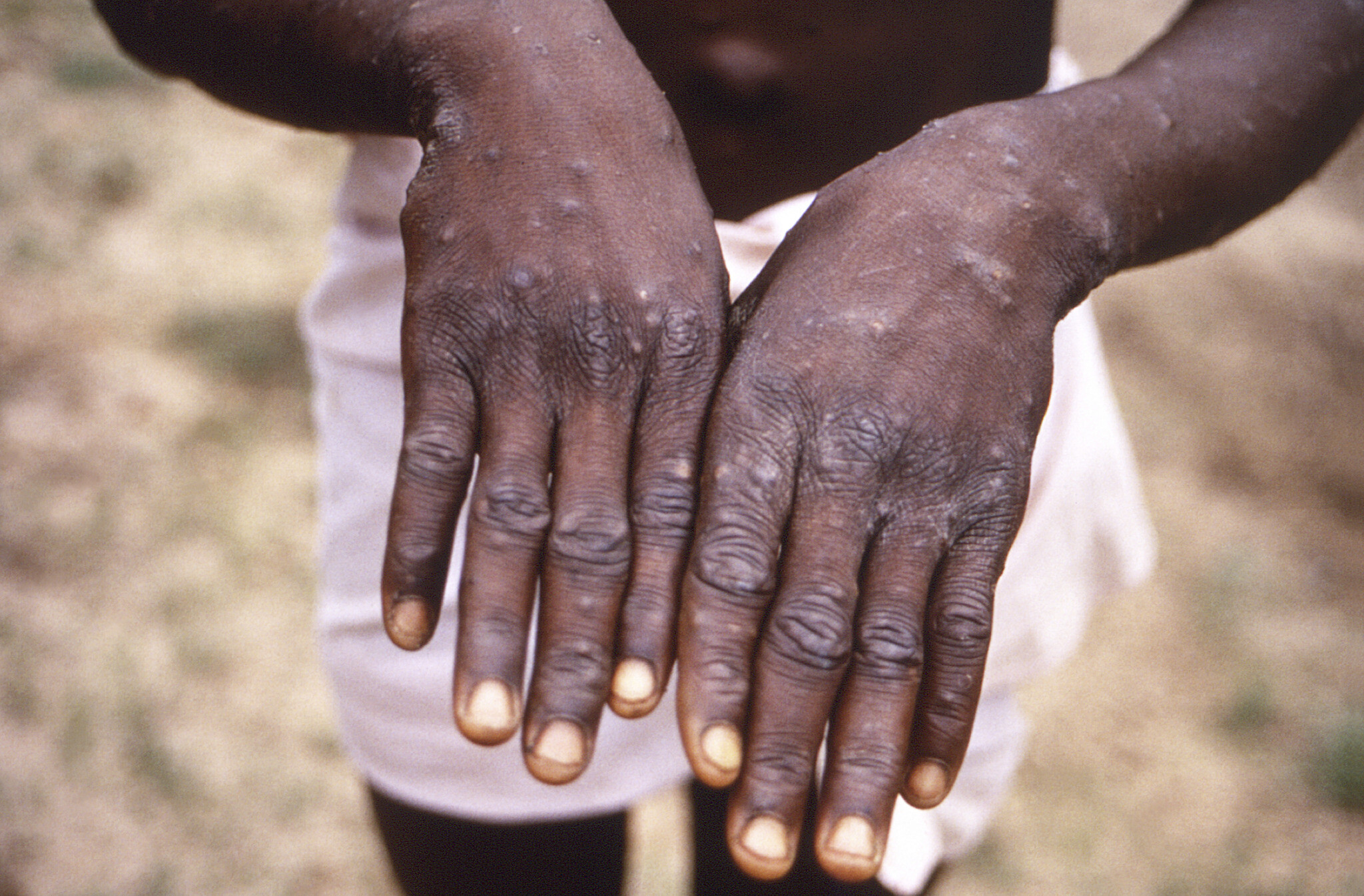Disease control committee director downplays fears of an epidemic after 1st case found in Israel; Health Ministry tells people coming from abroad with symptoms to contact a doctor

Health officials downplayed fears of a monkeypox outbreak on Saturday after confirming the first case of the disease in Israel, and as health officials wrapped up a meeting about the viral infection, which has been surfacing in Europe and North America.
Israel’s first suspected case was reported on Friday, and confirmed during the meeting Saturday night. The 30-year-old man is hospitalized in Tel Aviv in mild condition.
The Israel Center for Disease Control committee wrapped up an urgent Saturday night meeting about monkeypox without making any major decisions, but vowing to monitor the disease.
Dr. Boaz Raz, the head of the committee, said he did not expect a widespread outbreak.
“This is not an epidemic, but we need to raise awareness in the public,” Raz said, according to Channel 13.
The Health Ministry called on “anyone who has returned from abroad and has a fever and a rash to contact a doctor.”
The Health Ministry estimates there will be dozens more cases in Israel, but that there is no danger to the general public and that the disease will not become an epidemic, the Kan public broadcaster reported.
The ministry stressed that the disease is usually mild and there are few instances of serious illness or death.
The ministry also said it is “examining equipping itself with vaccines and relevant medications,” as well as gearing up for further diagnoses.
At the meeting, the health experts discussed administering vaccines to people after they were exposed, which could still ward off a serious case, Channel 13 said.

Galia Rahav, the head of Sheba Medical Center’s Infectious Disease Unit and a member of the committee, told Channel 13, “This is a completely different infection than the coronavirus, a lot less infectious.”
She did it didn’t spread through particles in the air like COVID-19, making it less transmissible. She also that up until 1996, IDF recruits received smallpox vaccinations, which partially protect against monkeypox.
Medical experts on the LGBTQ community took part in the Center for Disease Control committee meeting. The World Health Organization has said it is investigating the fact that many cases reported in other countries were people identifying as gay or bisexual. The Israeli experts urged avoiding the subject so the disease would not be stigmatized.
They also called for preparations ahead of next month’s gay pride events, which are expected to draw 100,000 participants, including many from abroad.
The health experts also discussed whether or not to vaccinate medical staff who come in close contact with infected patients, or people who were exposed and have compromised immune systems.
Israel’s first case of the virus was a man who returned to Israel recently from abroad. He is in isolation at Ichilov Hospital in Tel Aviv and in mild condition.
Top European health officials warned Friday that cases could accelerate in the coming months, as the virus has spread to at least eight European countries. There have been around 80 confirmed infections, and another 50 suspected cases.
To date, no one has died in the outbreak. Monkeypox typically causes fever, chills, rash and lesions on the face or genitals. WHO estimates the disease is fatal for up to one in 10 people, but smallpox vaccines are protective and some antiviral drugs are being developed.
The virus, which causes distinctive pustules, has previously been seen in Central and West Africa, but over recent weeks cases have been detected in European countries including Portugal and Sweden as well as the United States, Canada and Australia.
Monkeypox usually clears up after two to four weeks, according to the WHO.
As reported by The Times of Israel
